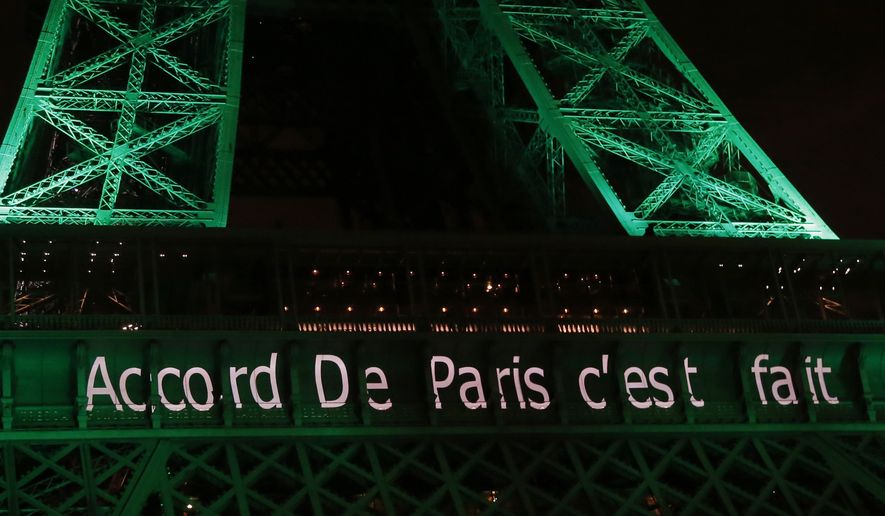OPINION:
It’s only a slight exaggeration that as America goes, so goes the world. As the returns rolled in from Election 2016, many delegates at the United Nations annual climate change conference, which opened Monday in Marrakech, Morocco, were on pins and needles. Others were on tenterhooks. Still others wandered the halls in search of a cliche of their own. They all understood that the next president of the United States could make or break their climate change industry. Donald Trump’s epic victory arrived like a jolt of lightning from a clear blue sky.
The Donald would not be welcome at the U.N.’s 22nd Conference of the Parties; he has threatened to withdraw U.S. participation in the body’s climate agreement. Terms of the pact say pulling out could take four years, but once in office President Trump could neutralize it by merely ignoring it. In its stead he proposes an “America First” energy plan that would “unleash America’s $50 trillion in untapped shale, oil, and natural gas reserves, plus hundreds of years in clean coal reserves.”
If the delegates at Marrakech could have voted, Hillary Clinton would have run up an enormous majority. Her platform dovetailed with theirs, designed to use the coercive powers of the state to re-engineer the world’s energy, based on renewable energy sources like sun and wind rather than oil and coal. Her vow to create jobs but building a half-billion solar panels was music to green ears, as long as no one spoiled the fun by bringing up Solyndra.
The U.N. longs to reduce the heat-trapping greenhouse gases that fossil fuels produce under the belief it would save the world from extreme heat. Until clear proof of warming emerges, enthusiasts dutifully gather at exotic resorts and keep the climate change fires burning until skepticism is quenched, or squashed. The Marrakech meeting is meant to reinforce an agreement signed by 197 nations last December in Paris, which set out the key goal of preventing global temperatures from rising more than 2 degrees Celsius above pre-industrial levels by the turn of the next century. Now that strategy may go up in more smoke.
President Obama, an enthusiastic climate changer, vows to reduce American emissions by 28 percent below 2005 levels by 2025. The United States paid $500 million into the U.N.’s Green Climate Fund to finance clean energy projects in poor countries. For all the billions Mr. Obama has dumped into green energy subsidies, renewable energy still only provides the United States with less than 10 percent of its needs. That won’t change much in the foreseeable future.
Americans have consistently placed global warming near the bottom of their list of concerns. A Pew Research Center survey of registered voters finds that only 38 percent care about global climate change “a great deal,” 62 percent worry about it “some,” “not too much” or “not at all.” To no one’s surprise, 56 percent of Clinton voters and only 15 percent of Trump backers are “very concerned.”
Gina McCarthy, the administrator of the Environmental Protection Agency, says Mr. Obama’s U.S. climate regulations, while “enormously beneficial,” will lower global temperatures by no more than one one-hundredth of a degree Celsius. The U.N. agreement reveals itself to be a global income redistribution scheme. With Mr. Trump’s election, the U.N. must hit the brakes on its headlong rush to rejigger the world’s energy industry. This Marrakech Express is designed only to go off the rails.




Please read our comment policy before commenting.